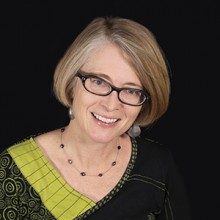The Sustainability Institute hosted its inaugural Energy Symposium last week, led by our two Sustainable Energy research leaders, Jeff Bielicki and David Cole. The symposium featured researchers working on innovations in decarbonization technology and policies, and to better understand the potential environmental, social and economic challenges and implications, as well as others at Ohio State engaged in helping this transition for our campus and in Ohio communities. It highlighted the complexity of these issues and the reality that, while there is an immediate need to wean our economy and ourselves from fossil fuels, there is no silver bullet. Any future pathway has both costs and benefits and its own challenges. By some estimates, replacing hydrocarbons with wind, solar and battery-powered vehicles at the scale needed constitutes such a large shift in mined energy resources, including rare earth minerals, that the result would be a ten-fold increase in the quantity of materials mined and processed per unit of energy delivered.
Despite the inevitable trade-offs, the enormous costs of “business as usual” underscore the urgent need for large policy changes to achieve a zero-carbon, and eventually negative-carbon, economy. The massive societal benefits to reducing carbon emissions come in the avoided costs of reducing the extent of the irreversible and disastrous outcomes that are projected to come with surpassing Earth systems’ climate tipping points. Reducing carbon emissions generates enormous multiplier effects given that climate change disrupts every aspect of our society.
The Biden administration has signaled its commitment to addressing the immediate and urgent threat of climate change through potentially large investments in new clean energy technologies and other green measures, including the elimination of subsidies for fossil fuels. Given the grievous acts of the Trump administration to roll back environmental protections, renewed efforts to implement the lasting changes needed to achieve structural reductions in carbon emissions cannot come soon enough.
To justify these investments, the Biden administration is focused on job creation through investments in greater energy efficiency and deployment of new technologies, most of which are in construction and operations. However, the number and permanence of these jobs are limited and the societal benefits in terms of potential job growth are likely to be modest. A more holistic approach would advance a better understanding of the benefits of avoiding the worst of the disastrous outcomes associated with climate change and implementing strategies for improving the sustainability of our communities and regions through direct investments in people. For example, the federal government could work with states to expand severance and land taxes coupled with permanent trust funds that would enable investments in new and expanded training and education programs that will be critical, especially for displaced workers. Such investments build human capital and provide people with the ability to be responsive to employment opportunities across a range of sectors, thus contributing to the overall sustainability and resilience of people and communities.
As sustainability scientists, we understand the complexity of these systems, the interdependencies that exist, and the large multiplier effects that reductions in carbon emissions will have for our economy, environment and communities. As land grant faculty, we have an obligation to translate our research through teaching, outreach and engagement to help inform this national dialogue and to help our communities and residents understand the large and lasting societal benefits that will be brought by spurring technological innovations and growing the clean energy economy — benefits that extend well beyond a modest number of clean energy jobs.
To help support these efforts, the Sustainability Institute is launching a new initiative to foster interdisciplinary networking, teaming and collaboration through exploratory research groups. In the coming weeks, we will open a process to solicit your ideas for topics and will use this input to form and support new teams of faculty and researchers. I hope you will participate! And in the meantime, be thinking about the topic you’re most passionate about and would like to pursue.

